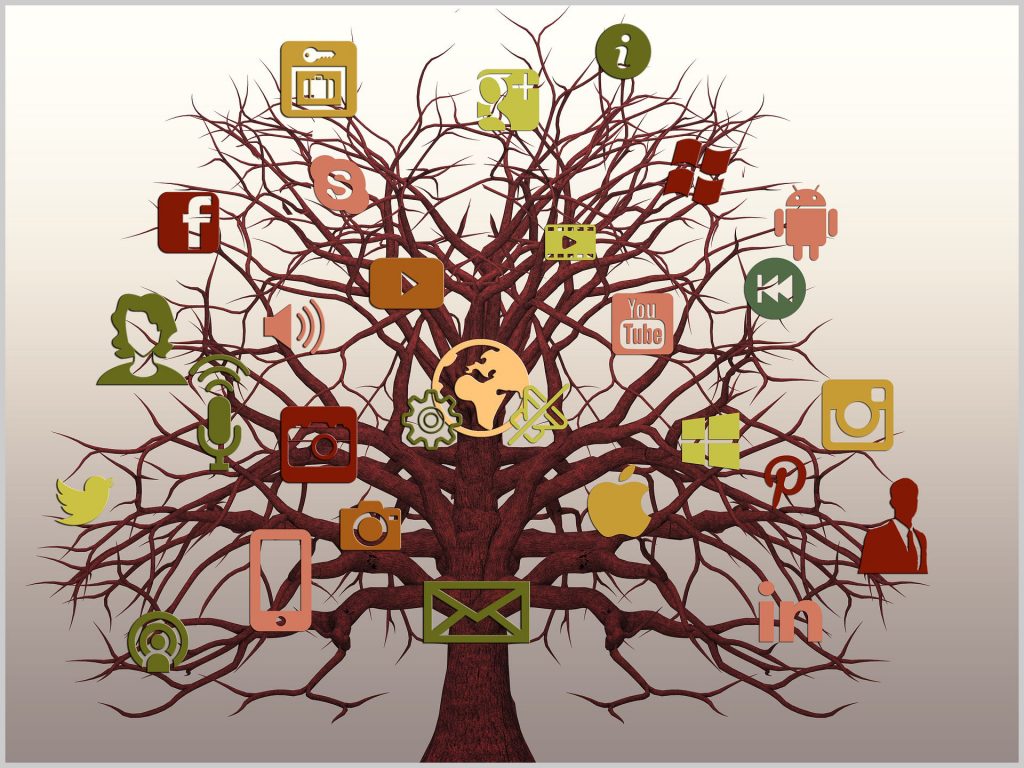Social networks are a huge part of our everyday lives, both at work and at home. It’s easy to get lost in the avalanche of social media updates. Before you know it, your whole workday has been consumed by unproductive web surfing, tweets, and posts. Nucleus Research found that 25 percent of US workers spent a minimum of two hours a day surfing the Internet. For that reason, many companies have blocked Twitter, along with Facebook, YouTube, and other social media websites at work. A Computer World study indicates that almost 54 percent of US employers have limited their workers from using social media while on the job.
Additionally, 28 percent of bosses have fired people for using work resources to shop online, check Facebook news feeds, and engage in other non-work-related social media activities during office hours. It seems bosses have taken social networking sites quite seriously.
On the other hand, eight percent of companies actually encourage their workers to use social media. They say networking is a valuable marketing and sales tool. Does your company have restrictions against web surfing in the workplace? Let me know in the comments.
The overall effect of social media is not always clear. Is social media a productivity killer or is this an excellent opportunity for business growth?
How social media can be blocked at work?
There are hundreds of “how to block social media at work” manuals. The market offers dozens of filters and Internet control software designed to block all of the major social networking resources. Which approach is used most often for blocking social networks?
First of all, Internet access can be blocked entirely on both computers and mobile devices. Then, there are also many programs that allow employers to block specific websites or limit their usage. These programs often include the ability to remotely monitor Internet surfing activity, block websites for a specific number of minutes, and limit time allowed on them. They can also collect statistics for a given time period, telling a manager how many minutes or even hours an employee has spent on certain websites and apps.
Additionally, some companies may have different levels of Internet restrictions for different job positions. The person managing the company’s social media accounts and HR department staff may have no restrictions at all on the Internet’s resources, for example.
Along with hundreds of “how to block social media at work” manuals, there are hundreds of manuals on how to access blocked sites at work. I’ve personally counted 21 methods to unblock forbidden websites in five minutes. Sounds impressive, right? You can bet that your employees are able to do the same. This leads us to the idea that restricting management methods isn’t that effective.
The impact of social media on mental well-being and productivity
While many businesses block social media at work to increase productivity and decrease distractions, one must take into account the larger effects of such sites on employees’ mental well-being and overall performance. Social media is not only a potential distraction but can also provide moments of respite and connection and, at times, professional development. It greatly depends on how it is used. Understanding both the benefits and drawbacks of in-work use of social media will facilitate finding a balance by companies between managing productivity and supporting employee well-being.
Positive impacts on employyes mental well-being and productivity
1. Fast Stress Relief
It could be described as an indirect form of reasoning, where social media provided a brief mental break from the demanding tasks employees were working on. Just a little bit of scrolling can help to reduce stress levels and re-center workers, as it gives them a chance to recharge their batteries and get back to work feeling refreshed.
2. Connection and Support
Besides, social media makes people not feel disconnected when working remotely or as a solo worker. Communication with co-workers or groups erases that lonely feeling, thus escalating morale. This is important, especially for the workgroup type who can only excel with collaboration and team spirit.
3. Professional Development
Platforms like LinkedIn or Twitter or other similar online communities, often present employees with opportunities to learn and develop professionally. Access to things like industry trending articles, leadership articles, and even online seminars improves an employee’s position because it helps to build their skills and confidence, which directly affects their productivity.
Negative impacts on employees psychological well-being and productivity
1. Increased Anxiety and Comparison
Excessive use of social media may create feelings of inadequacy or stress because of constant comparisons to either peers or influencers. Employees can easily feel overwhelmed by this urge to “keep up,” which can distract them from their work and affect their job satisfaction.
2. Distractions and a Decrease in Productivity
A short break can be refreshing; however, anything excessive in terms of social media usage during work hours would dramatically reduce productivity. The notifications that constantly pop up, the addicting content algorithms, and unfocused updates take employees away from their important work.
3. Emotional Burnout due to Overconnectivity
Burnout can be induced also by the fuzzy lines between work and personal life brought in by social media. It could drag workers into keeping up on professional sites or responding somewhat excessively on the workplace social networks, narrowing what had once been availability for genuine downtime.
Finding the Right Balance
Companies can take the next step by encouraging employees to practice mindful use of social media. This might be achieved by:
- Utilizing social media breaks in order to avoid overuse.
- Providing training in managing digital distractions.
- Encouragement of platforms that offer professional development and learning from peers.
So there are dual positive and negative impacts of social media in the workplace. The question is, how should it be managed? Social media can offer valuable mental breaks and professional development; it may also be a source of distractions and stress. This leads us to the most debated topic: should employers block access to these platforms or is there a way to allow the use of social media with no harm to productivity? Let’s examine both the pros and cons of blocking social media access at workplaces.
Reasons for blocking social networking sites
In my personal opinion, employers should not block social media. I am confident in my position, but I can understand why bosses may sometimes choose to implement it. For example, if you are tired of warning a worker who is constantly overusing social media at work, you might decide that blocking access to social media will boost your company’s productivity. Although I don’t advocate such a decision, there are situations that may prompt you to decide to limit the Internet access at your office.
To tell the truth, social media can cause a decrease in productivity decrease. According to the latest research, an increasing number of US workers are logging into social media networks during work hours. The most common reason employees use social media is not work-related. They use it to take a mental break or connect with friends and relatives.
Reasons not to block social media at work
Are there benefits to surfing social media at work? Here are a few surprising facts.
A study by the University of Melbourne revealed that workers with access to social media were actually more productive than the workers in companies that decided to limit Internet access. US employees who can reward themselves with some Facebook or Twitter surfing between tasks get more done. According to the study, these employees are nine percent more productive than their “blocked” colleagues.
Secondly, if you are blocking social media at work, you might face the fact that almost 40 percent of Generation Y won’t work for companies that restrict access to their favorite sites. This segment of Millennials values “social networking freedom” even more than a cushy salary.
Furthermore, while blocking social networking sites does not necessarily limit a staff’s use of them, it does demonstrate an employer’s lack of trust. Telling your team that you don’t trust them only causes conflict. Say goodbye to productivity, loyalty, and engagement.

Taking this into account, social media fits into the category of “necessary evil.” The main question is whether you can take advantage of social networking-savvy employees. I think the answer is yes.
On one hand, employees may create or support professional connections via social media and get information that helps solve issues at work. They learn more about colleagues, build personal relationships with coworkers, and ask work-related questions outside of their companies.
On the other hand, if your company does not have any social accounts, encourage your Facebooking and tweeting workers to create and manage them. There are chances these workers will be happy to do it for the company, and you will benefit twice.
There is another productivity perk to consider, though. The fact that your workers are online means they are able to work anywhere. Think about it. You can check your work email on your cell phone as soon as you get up? That is a work-related activity at home. You take business calls after dinner? They may do the same. So, is social media really that harmful for your business?
Solution
Social networking sites are in everyone’s pocket nowadays. This fact can potentially lead to a lack of productivity in the workplace. Therefore, many employers have created restriction policies to minimize network usage at work. But are these policies effective? Apparently not. In a survey from the Pew Research Center, 77 percent of US employees said that they still used social media, despite company policies against it. A do-nothing worker won’t become your best performer just because you restrict his or her social network access. He or she will just find another way to slack off.
Instead of regulating a problem you can’t control, use it to improve your business performance! Maybe it’s time to train workers to use networking sites in a productive way. Here are some suggestions:
1. Implement social media breaks
Breaks are necessary for maintaining a high level of performance. 57 percent of bosses and 64 percent of their workers surveyed by Staples this year said that short breaks were a key factor in their overall performance. By giving workers the chance to switch off work mode, companies are starting to notice a positive impact on productivity. When workers know they will have time dedicated to social surfing, they won’t check every phone buzz or alert.
2. Conduct research and seek advice
Your workers can use social networking sites to help with their professional growth and daily tasks, such as conducting research on specific questions. For instance, experts on Linkedin or Twitter tend to post useful articles on best practices. Also, your workers can use sites like Quora to see what the online community thinks about a specific issue.
3. Grow professional networks
Social networking sites can help connect professionals with workers in the same industry.
4. Recruit new talent
The different social platforms offer unique features that are perfect for spreading brand awareness and attracting top talent.
5. Engage in team-building
On their simplest level, social networking sites connect colleagues with each other.
6. Use a team communication app
If your workers need to communicate with each other online for working purposes, don’t be surprised if they use social media sites at work. The contact lists of Facebook, Skype, WhatsApp, and others are usually full of friends and relatives. So there are many possible distractions your workers can suffer from—tons of notifications when people update a status, change a profile picture, add a photo, like a page, send you advertising spam, or just ask, “How do you do?”
Moreover, work communication via social media sites and instant messengers is not transparent. It is neither always accessible nor structured. On the contrary, team communication tools bring your employees from different messaging apps into one place, making it easier for your team to chat, search through earlier messages, and stop the endless flow of notifications from a dozen apps. Instead, all the notifications from various software you and your team use at work could be displayed in one place—your team messenger. Another issue that a team communication tool solves is avoiding distractions coming from people who are not your team members.
To sum up, the term “social media” may make some employers shudder. However, it’s a powerful tool that can be used to help your workers develop their careers and performance.
Summary
There will always be employees who waste their time. They were around long before computers, tablets, and mobile phones were invented. Does anyone really think that a person who is genuinely wasting time on Facebook will suddenly become the best performer because of blocked Internet access?
So, to block or not to block? The answer is simple. Productivity is not the time your workers spend at work engaging in non-work activities. It’s a measure of output. And using social networking sites can actually help increase company performance. Being an effective worker is not about avoiding your Facebook news feed at the office. It’s about getting work done well and on time.









Add comment